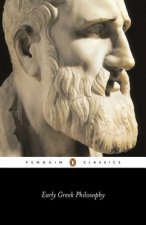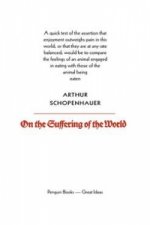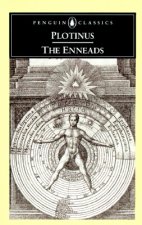
Kód: 02484240
Philosophical Faith and the Future of Humanity
Autor Helmut Wautischer, Alan M. Olson, Gregory J. Walters
Karl Jaspers, who died in 1969, had a profound impact on 20th-century theology and philosophy. His central thesis called for, among other things, a de-centering of philosophy from its Eurocentric roots and a renewal of its dialogu ... celý popis
- Jazyk:
 Angličtina
Angličtina - Väzba: Brožovaná
- Počet strán: 456
Nakladateľ: Springer, 2014
- Viac informácií o knihe

139.57 €

Skladom u dodávateľa v malom množstve
Odosielame za 12 - 15 dní
Potrebujete viac kusov?Ak máte záujem o viac kusov, preverte, prosím, najprv dostupnosť titulu na našej zákazníckej podpore.
Pridať medzi želanie
Mohlo by sa vám tiež páčiť
-

Neurobiological Effects of Sex Steroid Hormones
78.64 € -

Gardening Lab for Kids
22.42 € -21 % -

Radio Astronomy Techniques
70.86 € -

Coastal Morphodynamics
70.86 €
Darčekový poukaz: Radosť zaručená
- Darujte poukaz v ľubovoľnej hodnote, a my sa postaráme o zvyšok.
- Poukaz sa vzťahuje na všetky produkty v našej ponuke.
- Elektronický poukaz si vytlačíte z e-mailu a môžete ho ihneď darovať.
- Platnosť poukazu je 12 mesiacov od dátumu vystavenia.
Viac informácií o knihe Philosophical Faith and the Future of Humanity
Nákupom získate 345 bodov
 Anotácia knihy
Anotácia knihy
Karl Jaspers, who died in 1969, had a profound impact on 20th-century theology and philosophy. His central thesis called for, among other things, a de-centering of philosophy from its Eurocentric roots and a renewal of its dialogue with other traditions, especially Asian ones. This collection of essays includes unpublished work by Jaspers himself as well as testimonies to his life and career by colleagues, associates, and translators, some of who knew Jaspers personally. Readers will also find commentary and interpretation by researchers who have explored Jaspers work for decades, and a biographical account of Jaspers student Leonard Ehrlich, who handled much of Jaspers English translation.§The book interrogates Jaspers conceptions of philosophical faith , his philosophy of communication, and the prospects for world philosophy in the future. Focusing on philosophical faith, it assesses Jaspers interpretations of key philosophers such as Kant, Hegel, Schelling, Kierkegaard, Nietzsche, and Rosenzweig, as well as examining his personal relationships with Bultmann and Heidegger. Contributors also look at Jaspers philosophies of religion and history, his hypothesis of the axial age (Achsenzeit), and his contributions to metaphysics, periechontology, and economics. Finally, chapters cover Jaspers philosophy of communication and world history. The latter are informed by a burgeoning interest in Kantian Freiheitphilosophie that influenced Jaspers, as well as concerns over the future of humanity. These concerns in part account for Jaspers growing popularity in the Middle East, Eastern Europe, Central/South America, and Asia. Also included are lucid clarifications of the difference between religious and philosophical faith, and the relevance of certainty, trust, and communication for a future of mankind.§Trained as a psychiatrist, Jaspers practiced this profession before becoming a philosopher and thus had a keen insight into the workings of the human mind even as he challenged the philosophical establishment of his time. It is perhaps this depth to his background that adds to the contemporary relevance of his work.§
 Parametre knihy
Parametre knihy
Zaradenie knihy Knihy po anglicky Humanities Philosophy History of Western philosophy
139.57 €
- Celý názov: Philosophical Faith and the Future of Humanity
- Autor: Helmut Wautischer, Alan M. Olson, Gregory J. Walters
- Jazyk:
 Angličtina
Angličtina - Väzba: Brožovaná
- Počet strán: 456
- EAN: 9789400797031
- ISBN: 9400797036
- ID: 02484240
- Nakladateľ: Springer
- Hmotnosť: 718 g
- Rozmery: 235 × 155 × 26 mm
- Dátum vydania: 22. February 2014
Obľúbené z iného súdka
-

Meditations
11.87 € -5 % -

The Myth of Sisyphus
8.08 € -

Why I Am so Clever
4.19 € -11 % -

Meditations
16.58 € -23 % -

Republic
11.97 € -17 % -

Beyond Good and Evil
11.15 € -23 % -

Gay Science
12.69 € -22 % -

Aphorisms on Love and Hate
3.57 € -24 % -

Beyond Good & Evil
12.89 € -21 % -

Meditations on First Philosophy
10.74 € -19 % -

Intellectual Life
19.55 € -19 % -

Socrates' Defence
3.57 € -24 % -

Discourses, Fragments, Handbook
11.66 € -19 % -

Ride the Tiger
25.18 € -3 % -

Thus Spoke Zarathustra
9.82 € -24 % -

Fear and Trembling
11.15 € -23 % -

Birth of Tragedy
4.09 € -13 % -

Early Greek Philosophy
14.43 € -23 % -

Groundwork for the Metaphysics of Morals
10.95 € -19 % -

Gorgias
11.77 € -

Brief History of Analytic Philosophy - From Russell to Rawls
38.70 € -2 % -

On Duties
13.71 € -4 % -

Discourses and Selected Writings
10.95 € -24 % -

Nicomachean Ethics
6.03 € -19 % -

Nausea
11.15 € -23 % -

Letters from a Stoic
12.38 € -15 % -

Meditations
20.06 € -21 % -

Simulacra and Simulation
22.93 € -

Phenomenology of Spirit
34.81 € -

Twilight of the Idols with The Antichrist and Ecce Homo
5.42 € -28 % -

On Liberty, Utilitarianism and Other Essays
10.13 € -22 % -

On the Suffering of the World
7.98 € -22 % -

Human Condition
21.60 € -9 % -

On the Shortness of Life
8.59 € -18 % -

Existentialism Is a Humanism
9.10 € -19 % -

Think
12.28 € -23 % -

Guide to the Good Life
18.94 € -2 % -

How To Be A Stoic
17.71 € -23 % -

The Symposium
9.31 € -17 % -

Human, All Too Human & Beyond Good and Evil
5.93 € -21 % -

At The Existentialist Cafe
12.79 € -24 % -

Undiscovered Self
28.66 € -

Passions of the Soul and Other Late Philosophical Writings
12.28 € -23 % -

The Trouble With Being Born
13.20 € -18 % -

Leviathan
5.21 € -30 % -

City of God
18.94 € -2 % -

Ecce Homo
10.13 € -22 % -

Enneads
16.38 € -19 % -

On Friendship
7.98 € -22 %
Osobný odber Bratislava a 2642 dalších
Copyright ©2008-24 najlacnejsie-knihy.sk Všetky práva vyhradenéSúkromieCookies


 21 miliónov titulov
21 miliónov titulov Vrátenie do mesiaca
Vrátenie do mesiaca 02/210 210 99 (8-15.30h)
02/210 210 99 (8-15.30h)